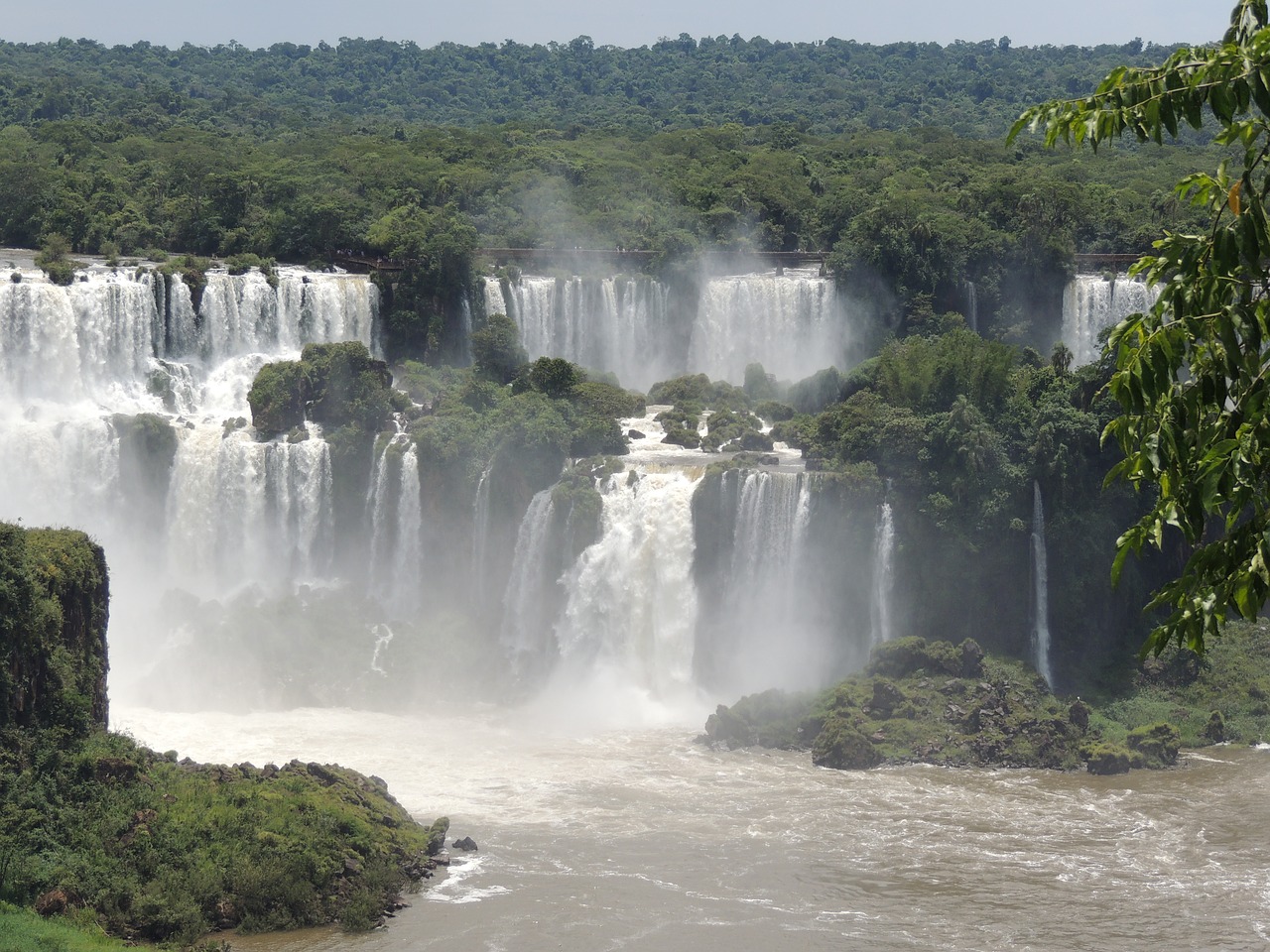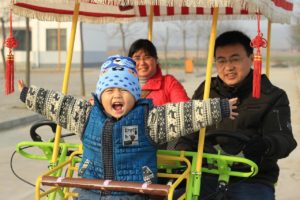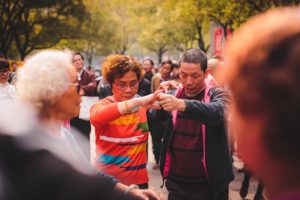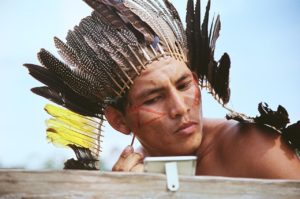Image by luciagoethe from Pixabay
In this post we’ll learn some vocabulary and expressions that you can use to talk about the natural world.
As Flores, As Árvores, A Grama e O Ar Fresco Flowers, Trees, Grass, and Fresh Air
Let’s start with some basics of nature that you can find around you even if most of the nature you see is in a park: uma árvore (a tree), uma flor (a flower), um jardim (a garden), a grama (grass), uma planta (a plant), um lago (a lake), uma lagoa (a pond), um caminho (a path), a mata (woods). You’re probably not going to see much wildlife in a park, but if you’d like to know how to talk about the animals you do see, check out this post.
- Há muitas árvores no parque.
There are lots of trees in the park. - Olha que bonita aquela flor.
Look at that beautiful flower. - Vamos nos sentar na grama.
Let’s sit in the grass.
- Vamos nos sentar no banco ao lado do jardim.
Let’s sit on the bench next to the garden. - Há um caminho passando pela mata.
There’s a path through the woods. - Vamos caminhar ao redor da lagoa.
Let’s walk around the pond. - Há peixes neste lago?
Are there fish in this lake? - O lago é raso ou fundo?
Is the lake shallow or deep?
As Árvores e As Plantas Trees and Plants
No matter where we are, there’s usually some kind of plant life around us, even if it’s in a pot in the corner of your office: as plantas caseiras (houseplant), o vaso de plantas (flowerpot), a rosa (rose), o espinho (thorn), o solo (soil), a folha (leaf), a bolota (acorn), a haste (stem), a semente (seed), a noz (nut), regar uma planta (to water a plant), plantar uma semente (to plant a seed), florescer; as flores florescem (to bloom; flowers bloom), crescer; as plantas crescem (to grow; plants grow).
- (Eu) preciso regar minhas plantas.
I need to water my plants. - (Nós) temos muitas plantas em casa.
We have a lot of houseplants. - Esse vaso de plantas é lindo.
That’s a beautiful flowerpot. - As folhas da planta estão ficando marrom.
That plant’s leaves are turning brown. - As bolotas estão caindo das árvores.
Acorns are falling from the tree. - As rosas têm espinhos nas hastes.
Roses have thorns on their stems. - Aquela é uma árvore de bordo ou um carvalho?
Is that tree a maple or an oak? - Os pinheiros permanecem verdes no inverno.
Pine trees are green in the winter. - Plantei sementes de tomate no jardim.
I planted tomato seeds in the garden. - As flores florescem na primavera.
The flowers bloom in the spring. - As plantas no seu jardim estão crescendo rapidamente.
The plants in your garden are growing quickly.
As Colinas, Os Rios e Os Vales Hills, Rivers, and Valleys
Let’s add some more nature vocabulary: a colina (hill), o vale (valley), o rio (river), o riacho (stream), a cachoeira (waterfall); o campo (field), o prado (meadow), a pedra (rock), o pântano (swamp).
- Nossa casa fica em uma colina.
Our house is on a hill. - Moramos próximos ao rio.
We live next to a river. - O rio corre rapidamente aqui.
The river runs quickly here. - Há uma linda cachoeira aqui perto.
There’s a beautiful waterfall nearby. - Há muitas fazendas no vale.
There are a lot of farms in the valley. - Há um pequeno riacho na mata perto da nossa casa.
There is a little stream in the woods near our house. - Caminhamos através do campo.
We walked across the field. - Há lindas flores selvagens no prado.
There are beautiful wild flowers in the meadow. - Há muitas pedras na encosta da colina.
There are a lot of rocks on the hillside. - Esta estrada passa por um pantano.
This road goes through a swamp.
As Montanhas e As Florestas Mountains and Forests
If you ever get to the mountains, you may need to say: uma montanha (a mountain); uma cadeia de montanhas (a mountain range); o pico da montanha (the summit of the mountain); caminhar na montanha (to hike in the mountains); escalar uma montanha (to climb a mountain); um pico (a peak); um penhasco (a cliff); uma floresta (a forest); acampar na floresta (to camp in the forest); os pinheiros (pine trees); as árvores de bordo (maple trees); os carvalhos (oak trees); as bétulas (birch trees); animais selvagens (wild animals).
- Há duas cadeias de montanhas neste país.
There are two mountain ranges in this country. - Podemos ver lindas montanhas da nossa janela.
We can see beautiful mountains from our window. - Qual a altura do pico desta montanha?
How high is the summit of this mountain? - Os picos das montanhas estão cobertos de neve.
The mountain peaks are covered in snow. - Qual a altura daqueles penhascos?
How high are those cliffs? - Gosto de acampar na floresta.
I like to camp in the forest. - Há pinheiros / árvores de bordo / bétulas / carvalhos nesta floresta.
There are pine trees/maple trees/birch trees/oak trees in this forest. - Há animais selvagens nesta floresta?
Are there wild animals in this forest?
O Mundo The World
Let’s finish with some geographical terms that you can use to talk about the natural world. o continente (continent), o oceano (ocean), o mar (sea), a baía (bay), a costa (coast), a ilha (island), a península (peninsula), o deserto (desert), a selva (jungle), a geleira (glacier), o iceberg (iceberg), o polo norte / sul (north/south pole), norte / sul / leste / oeste (north/south/east/west).
- Quantos continentes existem?
How many continents are there? - O oceano é largo e profundo.
The ocean is wide and deep. - Amo nadar no mar.
I love swimming in the sea. - O rio esvazia em uma baia grande.
The river empties into a big bay. - Dirigimos ao longo do litoral.
We drove along the coast. - Você tem que pegar uma balsa para chegar à ilha.
You have to take a ferry to get to the island. - O deserto é quente e seco.
The desert is hot and dry. - Muitas variedades de plantas e animais vivem na selva.
Many different plants and animals live in the jungle. - As geleiras estão ficando cada vez menores.
The glaciers are getting smaller and smaller. - Há geleiras no oceano perto do polo norte / sul.
There are icebergs in the ocean near the north/south pole. - O sol nasce no leste e se põe no oeste.
The sun rises in the east and sets in the west.
Do you want to learn Portuguese?
Check out our other posts on Portuguese language, Brazilian culture, and more. And if you’re looking for convenient and affordable live Portuguese lessons with a real teacher, check out The Language Garage Portuguese. Our lessons are given online in a virtual classroom, so it doesn’t matter where you live or work. We can come to you. And we have flexible options, with a free trial so that you can decide if there’s a fit. Check us out!






